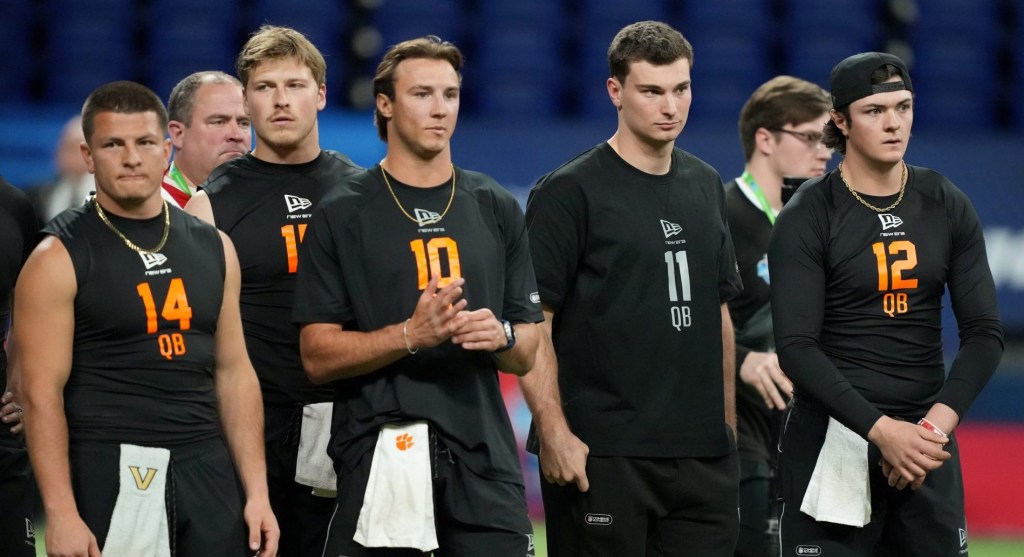The team has been gone for 16 years, but the banners still hang from the Toyota Center rafters.
There are four for the titles, the first four in WNBA history, and another pair for the numbers of Kim Perrot and Cynthia Cooper, who helped win them. Another jersey is dedicated to the fans, who lost their team despite all of the success.
The Houston Comets’ dynasty, powered by legends such as Tina Thompson, Sheryl Swoopes, and Cooper, defined the WNBA in its early years. The team folded in 2008 due to financial issues and poor ownership.
The WNBA’s past can’t be discussed without the Comets, but the league, at least for now, seems to envision a future without them. Commissioner Cathy Engelbert has talked about expanding the league from 12 to 16 teams and has already awarded bids to Golden State, which starts play next season as the Valkyries, and reportedly Toronto, leaving just two open spots.
When reached for comment about Houston, a WNBA spokesperson referred Front Office Sports to Engelbert’s comments in April at the draft, in addition to the league’s response to the report about Toronto, which said, “We continue to engage in productive conversations with interested ownership groups in a number of markets and the granting of any expansion teams requires a vote of the WNBA and NBA Board of Governors.”
At the draft, Engelbert floated a list of cities but declined to comment on specific markets when a reporter asked her about the chances of a team in her hometown of Philadelphia.
“We continue to engage with cities like Philadelphia and Toronto, and Portland and Denver and Nashville and South Florida and probably forgetting one, but those are the cities we’re talking to,” Engelbert said. “But just last week, we got calls from two other cities. These can either take a very long time to negotiate or can happen pretty quickly if you find the right ownership group with the right arena situation.”
Portland is considered a contender for one of the final two spots as Bucks star and longtime Trail Blazer Damian Lillard is reportedly part of an ownership group. Engelbert recently told the Associated Press Sports Editors that the 14th and 15th teams will be announced sometime in 2024 and added, “There are up to 10 cities fighting for that last spot.” Houston, despite its history and status as the top U.S. media market in which the league currently doesn’t play, doesn’t appear to be one of them.
“The Harris County-Houston Sports Authority is always willing to listen and be supportive for any league wanting to call Houston home, but to date, we have had no conversations with any of our tenants or the WNBA,” an official for the Harris County-Houston Sports Authority told FOS.
Houston has one obvious advantage over other markets: proof of concept. The team drew incredibly well in the WNBA’s early years and was able to grow the fan base due to the early success. From 1997 to 2002, the Comets averaged a league high of 11,442 fans per game. (In ’23, the league averaged 6,615 fans per game, an increase of 16% from ’22 and the highest since ’18.)
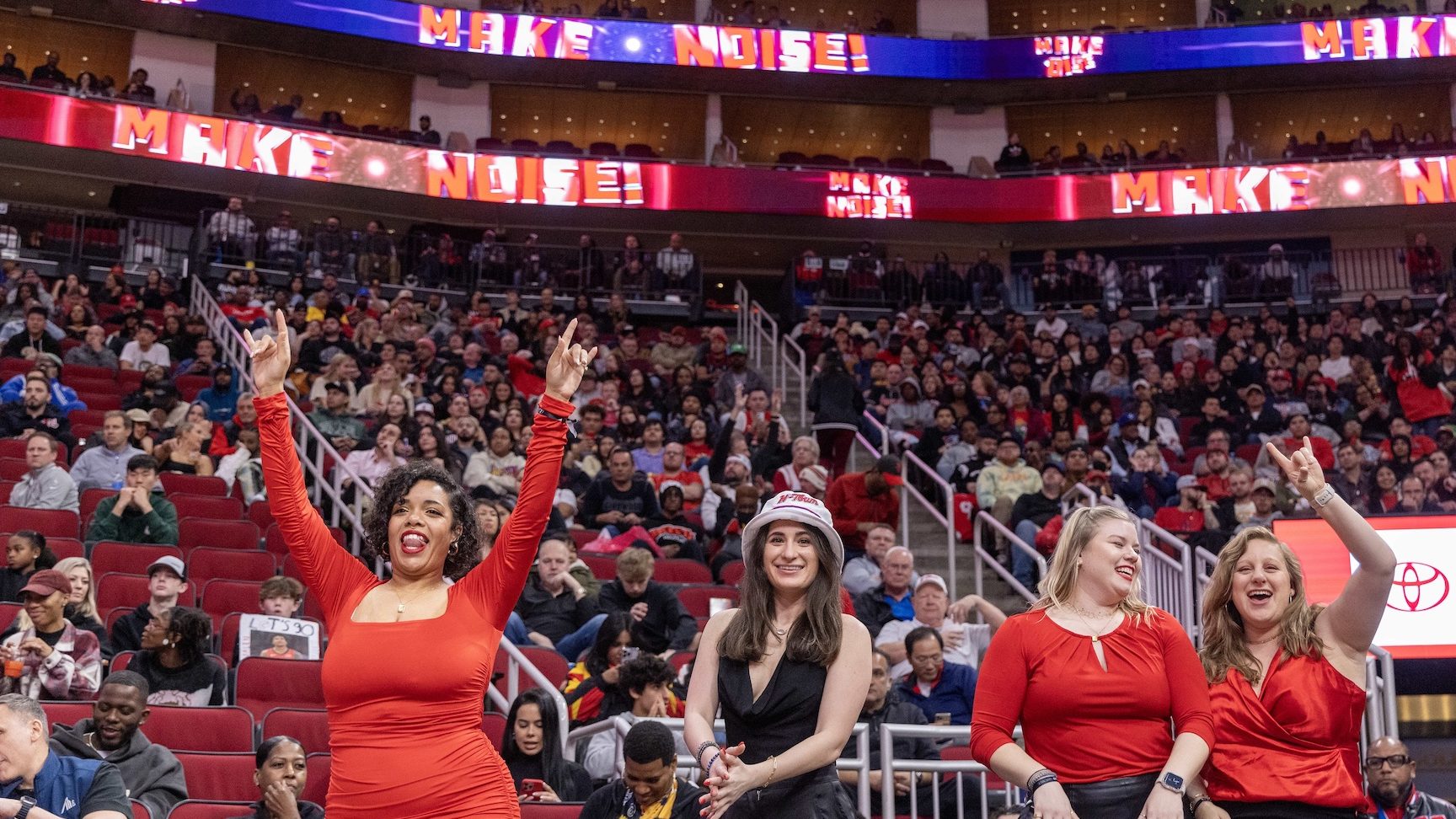
“We always had a good crowd,” says Roneeka Hodges, a former Comets guard from 2005 to ’08 and current assistant with the New York Liberty. “The people of Houston loved the Comets. It was based on everything we had accomplished in previous years. The support was always there.”
But the city is also primed for the moment both in terms of infrastructure and demographics. The league is looking to double its current media-rights deal, and Houston is a top-four city in the country based on population. As of 2021, the average age of a Houstonian is 33.7, right in the sweet spot of the 18 to 34 age bracket that studies show is the WNBA’s base for avid and casual fans. The city’s tourism arm, Houston First, is planning to invest $2 billion to turn the campus of its downtown convention center into an entertainment district, which is walkable from Toyota Center, home to the Rockets.
“All of the ingredients are there if those things would be able to come together for a WNBA team to be here,” says Michael Heckman, Houston First’s CEO.
The Comets’ early on-court success came under former Rockets owner Leslie Alexander, who sold the team to furniture mogul Hilton Koch in January 2007. That’s when the trouble started. Koch was a native Houstonian who wanted the team to succeed, but his business success didn’t translate to sports.
Shortly after the purchase, control of the team was handed to the WNBA. Koch started sustaining losses of $4 million a year, and the league eventually decided to cut its losses and shut the team down in December 2008. Tamecka Dixon, a 12-year WNBA veteran who was playing for the Comets at the time of their demise, told FOS that players were completely in the dark about the team’s financial situation because they were still receiving their checks as usual.
“I do think it was bad management in the fact that he didn’t have the pieces around him to excel,” says Dixon. “But I think his heart was in the right place. He really wanted to see it succeed and grow; he just didn’t have the basketball mind. It’s a completely different business. Running a furniture company and running a basketball franchise are two different worlds. Got to have the people around you who know that world.”
Both Dixon and Hodges said they’ve been surprised that Houston’s name hasn’t come up more in expansion talks.
“Everything lines up perfectly,” Dixon says. “The fan base is amazing. I think they want the Comets back. It’s just a matter of putting the right ownership group in place and getting it going again, but I think it would be an amazing city to have a WNBA team and I can’t imagine why it’s not on that list. I think that if there’s a viable opportunity to bring it back, I think Cathy would take a look at it. I think if an ownership group comes from that area and wants to bring a team back to Houston, I think Cathy would take a look at it. She would have no choice. Because there’s already a foundation there.”
Houston might have just the owner, but it could be too late to get involved.
Tilman Fertitta, the CEO and founder of restaurant giant Landry’s who bought the Rockets from Alexander in 2017, has helped transform the University of Houston, his alma mater, into a basketball powerhouse. Fertitta has previously tried to bring an NHL team to Houston, sparking speculation that the city could have been an alternate destination for the departing Arizona Coyotes before they announced their move to Utah in April.
The city’s last expansion team was in 2013 with the NWSL’s Houston Dash, who share an owner with the MLS’s Dynamo, in Ted Segal, which Heckman says has been beneficial to both teams and the city. The Comets had success when Alexander owned both of Houston’s basketball teams, an arrangement that Fertitta seems open to.
“I feel like WNBA expansion is going to always work better, and has a better chance of success, in a city like Houston, where the Rockets are one of the strong teams from a financial standpoint,” Fertitta told the Houston Chronicle in April. “I think that I would probably be the natural owner.”
Fertitta told the Chronicle he had planned to register his interest to the WNBA in owning a team in the coming weeks, but it’s unclear whether he has done so. A league spokesperson referred FOS to Engelbert’s April comments on expansion that point to teams requiring approval from the NBA’s Board of Governors, which Fertitta sits on. So he certainly isn’t out of the loop. A spokesperson for Fertitta didn’t respond to multiple emails from FOS seeking comment.
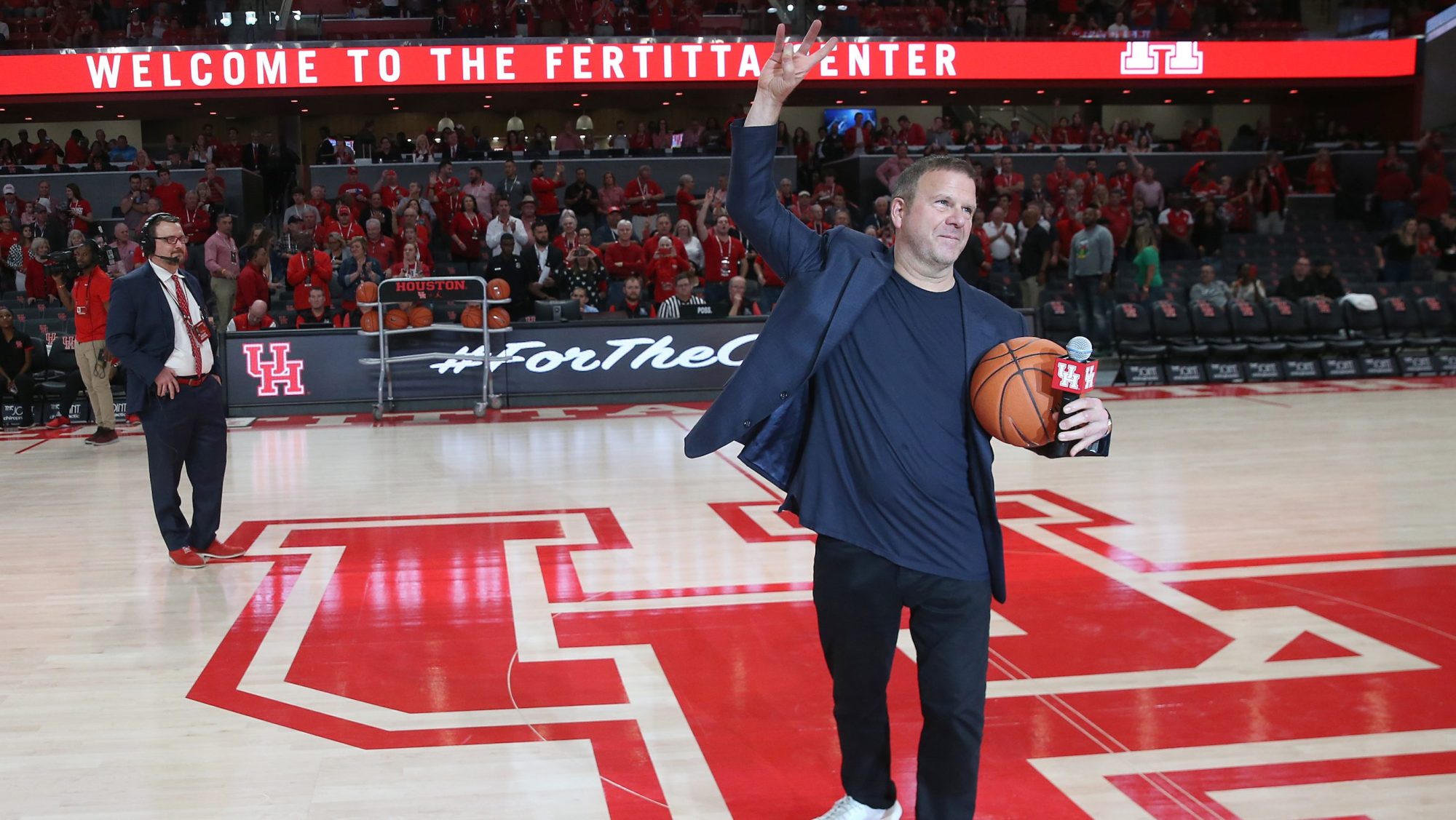
Engelbert said the right ownership group and arena situation can lead “pretty quickly” to negotiations compared to other interested cities. Fertitta and Houston definitely fit that bill, which means they hypothetically could be playing with a different deck of cards if he chooses to get involved.
For now, the Comets remain tied for the most WNBA championships with the Seattle Storm and Minnesota Lynx, and their legend lives mainly through the memories. A quick YouTube search pulls up just six videos related to the Comets, leaving it to the locals to keep their story alive. In April, Houston rapper Travis Scott tweeted, “It’s 3:30 am and I feel like Houston can bring back the Houston comets. Imma gonna go for it !!!!”
While his wealth might not rival Fertitta’s, perhaps Scott, or fellow Houstonian Beyoncé, could pursue ownership if the hospitality mogul elects not to. But given his track record of leading the University of Houston into the Big 12 or the current $30 million renovation at Toyota Center, Fertitta seems like the obvious choice, at least in this round of WNBA expansion.
“He’s not afraid to invest, and he’s not afraid to make big bets whether it be in his business or with any involvement he has in sports,” Heckman says of Fertitta. “If that’s of interest to them, and they’re able to get that done, if there’s anybody that can do it, it would be him.”
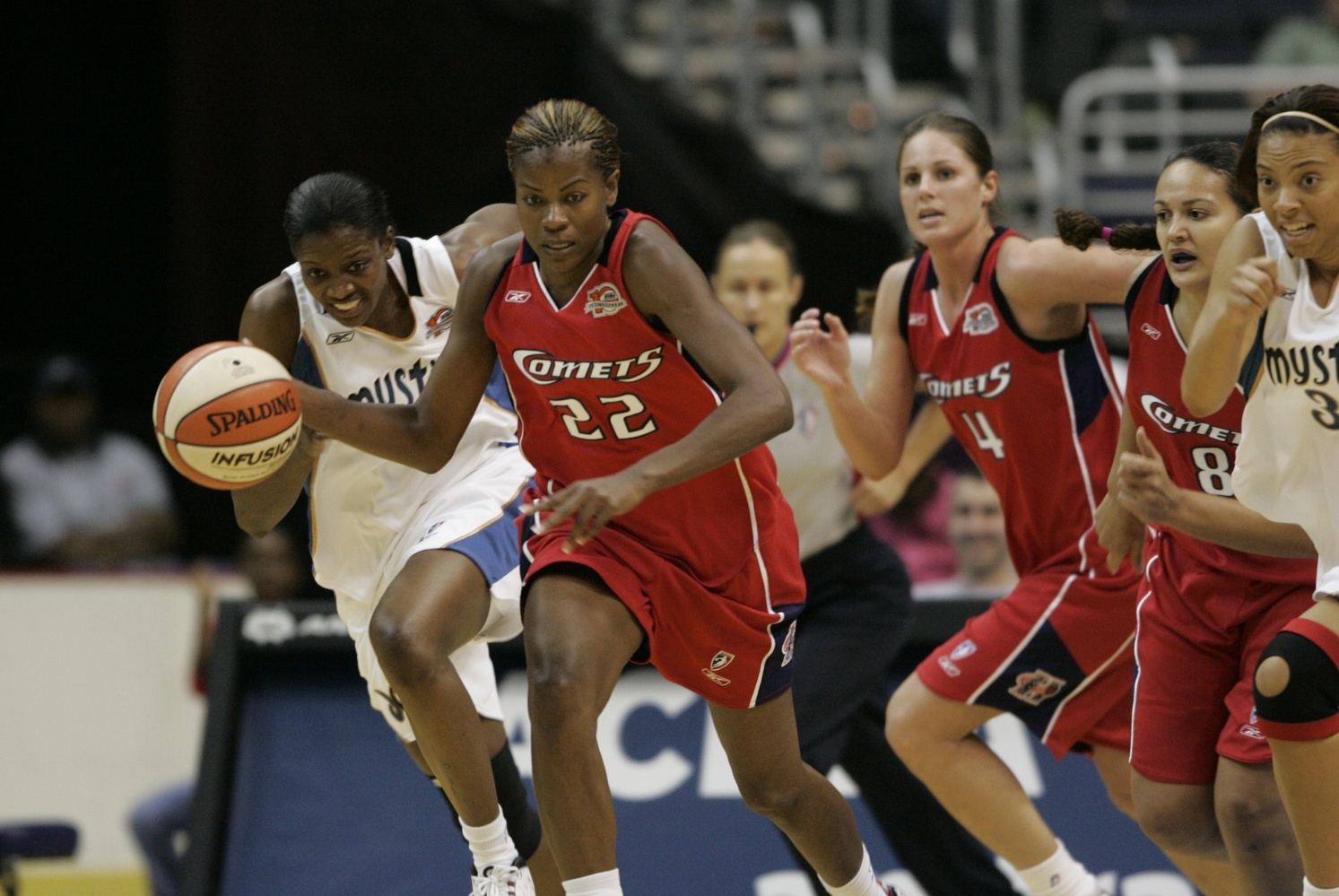







![[Subscription Customers Only] Jun 15, 2025; Seattle, Washington, USA; Botafogo owner John Textor inside the stadium before the match during a group stage match of the 2025 FIFA Club World Cup at Lumen Field.](https://frontofficesports.com/wp-content/uploads/2026/02/USATSI_26465842_168416386_lowres-scaled.jpg?quality=100&w=1024)
![[Subscription Customers Only] Jul 13, 2025; East Rutherford, New Jersey, USA; Chelsea FC midfielder Cole Palmer (10) celebrates winning the final of the 2025 FIFA Club World Cup at MetLife Stadium](https://frontofficesports.com/wp-content/uploads/2026/02/USATSI_26636703-scaled-e1770932227605.jpg?quality=100&w=1024)

![[US, Mexico & Canada customers only] Feb 6, 2026; Riyadh, SAUDI ARABIA; Jon Rahm in action during the third round of play at LIV Golf Riyadh at the Riyadh Golf Club.](https://frontofficesports.com/wp-content/uploads/2026/03/USATSI_28173562_168416386_lowres-scaled.jpg?quality=100&w=1024)
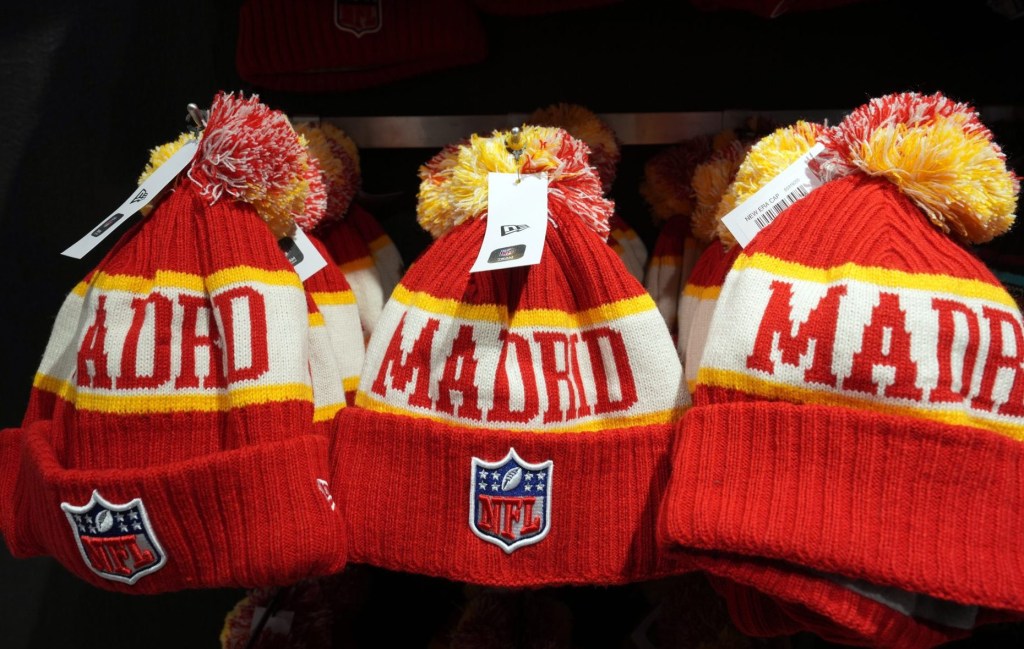


![[US, Mexico & Canada customers only] Sep 28, 2025; Bethpage, New York, USA; Team USA's Bryson DeChambeau reacts after hitting his approach on the 15th hole during the singles on the final day of competition for the Ryder Cup at Bethpage Black.](https://frontofficesports.com/wp-content/uploads/2026/03/USATSI_27197957_168416386_lowres-scaled.jpg?quality=100&w=1024)

